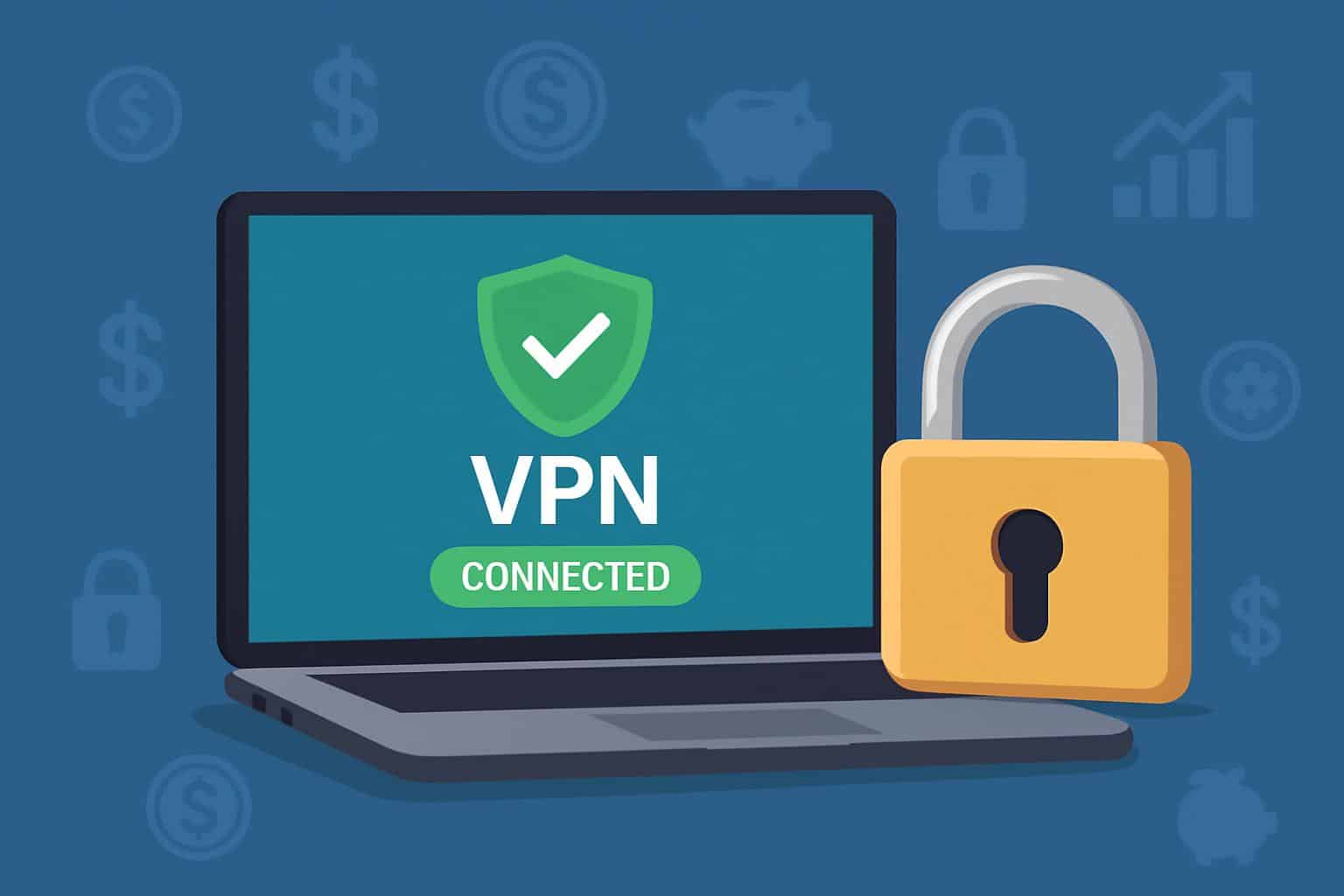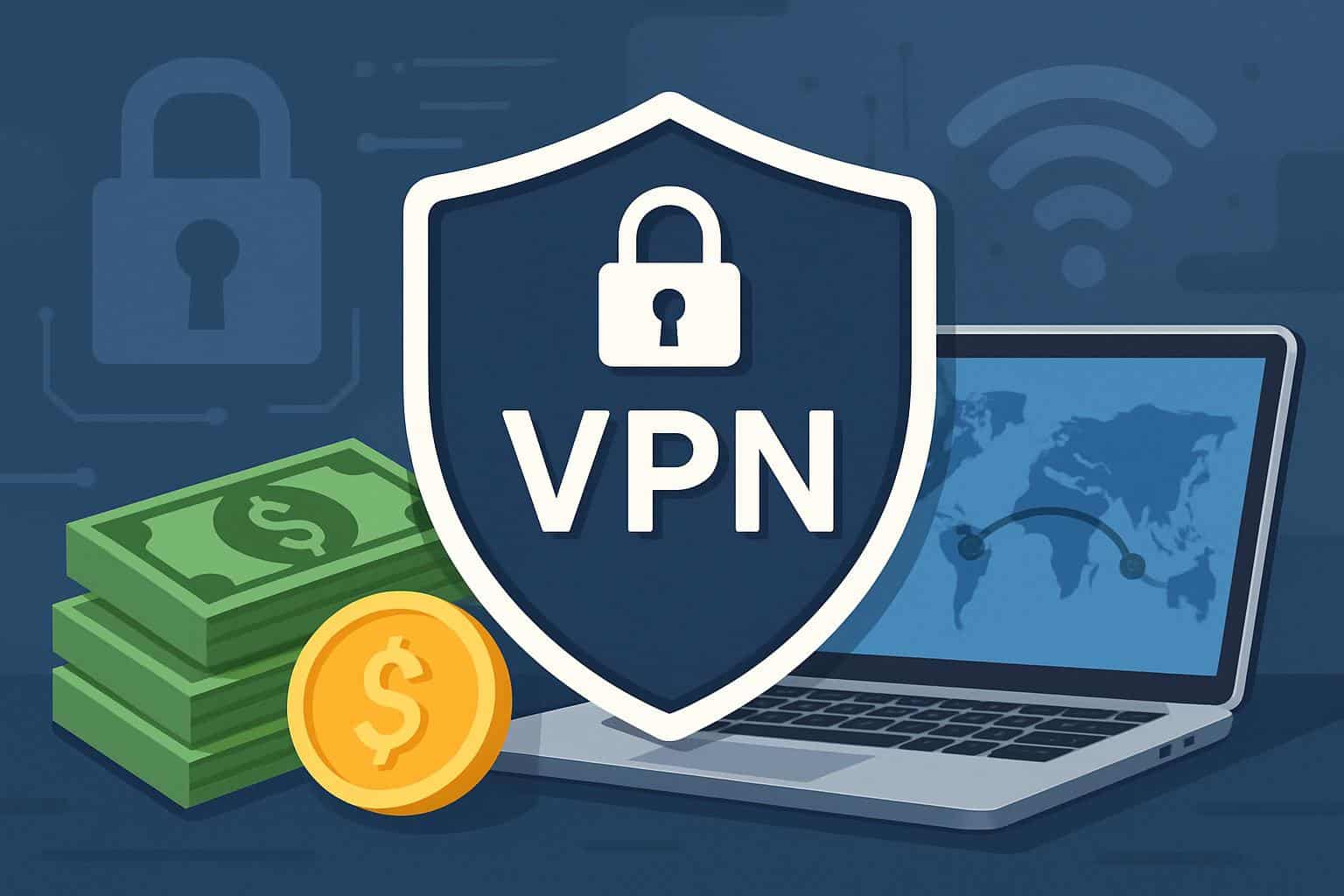Should you pay for a VPN? The short answer: a lot of times, yes — if you value reliability, privacy guarantees and features that work when you actually need them. Free VPNs are better than nothing, but fewer and fewer seem worth the effort. Free VPNs can work in a pinch, so long as you are willing to accept the trade-offs when it comes to data collection, speed and gaping security holes. When it comes to the right paid service, what matters less is all those bells and whistles — trust, transparency and reliable protection matter more.
Understanding What a VPN Does and What It Cannot Do
A virtual private network encrypts your internet traffic and bounces it through a server, hiding your IP address from sites and snoops when you’re out and about. It helps keep what you do online private when using public Wi‑Fi, hides activity from your internet provider and can help to stop profiling based on your IP. It doesn’t make you anonymous, block all trackers or replace good security habits.
- Understanding What a VPN Does and What It Cannot Do
- Free vs. Paid VPNs: Key Differences and Trade-offs
- When Paying for a VPN Is Worth the Cost and Effort
- What to Look for in a Reliable Paid VPN Service
- What About Reputable Free VPN Tiers and Their Limits
- Alternatives and Complements to Strengthen Privacy
- Bottom Line: When Paying for a VPN Truly Makes Sense

Free vs. Paid VPNs: Key Differences and Trade-offs
Free VPNs need to pay the bills somehow. The no-frills just-VPN approach also avoids some of the privacy-nightmare scenarios suggested by independent research highlighted by Consumer Reports and Privacy International, which found that many free VPN apps embed advertising SDKs, call for unnerving amounts of permissions or depend on opaque data-sharing agreements. Academic evaluations of mobile VPNs have concluded that there are trackers in widespread use and identified cases where DNS or IPv6 leaks could undermine the very privacy that users seek.
Regulators have taken notice. Consumers have been warned by the Federal Trade Commission about overblown or deceptive privacy promises made in VPN advertising. Digital rights groups such as the Electronic Frontier Foundation have urged providers to vouchsafe no‑logging policies and explain ownership structures. Top10VPN’s transparency research has repeatedly raised concerns about free VPNs with murky corporate connections or vague policies.
Not all paid services are good and not all free ones bad. The distinction is that the ones that are trustworthy will be more likely to be scrutinized in independent audits from firms like Deloitte, PwC or Cure53; deploy modern, open protocols such as WireGuard and OpenVPN; log transparency reports at length; sustain consistent speeds. These measures are no guarantee of perfection, but they are verifiable benchmarks not generally offered by a free service.
When Paying for a VPN Is Worth the Cost and Effort
On public Wi‑Fi, a good VPN service can be the difference between safe browsing and everything that you do being observed by an opportunistic eavesdropper.
Corporate security teams have for ages required encrypted tunnels for work connections; the same reasoning holds true for your personal devices at airport lounges, hotels and coffee shops.
Travel and evading censorship are another point for paid options. Trustworthy obfuscation modes with multi-supported IP addresses and multi‑hop routing ensure that connections are undetected in locations where VPNs are restricted or filtered. These features require infrastructural and engineering resources that free products typically don’t support at scale.

Heavy streaming, gaming or big downloads also tip the scale. Independent speed testing labs and network intelligence agencies consistently demonstrate that VPNs do introduce some overhead; good paid-for services minimize that by using optimised servers and clever protocol selection. Consistent bandwidth is important because the fastest way to “break” your privacy is to make the VPN so slow you cheat and turn it off.
What to Look for in a Reliable Paid VPN Service
Look for a no‑logs policy that has been audited by a reputable third party, not just offered as an assurance in marketing copy. Look for providers that release security white papers, transparency reports, and information about the company’s ownership and jurisdiction. A few sophisticated operators operate servers without disks (only in RAM), to minimize the chances of data traces if equipment is confiscated.
Verify core protections: a strong kill switch, as well as DNS and IPv6 leak prevention, modern encryption standards, and widespread platform support with open‑source or reproducible clients when possible. Useful extras include split tunneling, multi‑hop routes and lightweight tracker or malware blocking. And for censorship resistance, try to find obfuscation modes that polish VPN traffic as normal HTTPS.
The price should be clear and firm. Count on about what you would spend on a couple of cups of coffee each month for an annual plan. Be wary of deep lifetime deals and “free unlimited” claims. Check how many devices it covers, if there are data caps, virtual server locations or peer‑to‑peer restrictions that matter to you.
What About Reputable Free VPN Tiers and Their Limits
A few top-notch providers offer free plans to entice new customers, usually with strict data limits or daily usage caps. These could be fine for occasional use, rapid protection on insecure public Wi‑Fi or testing to see if your devices can connect. Read the privacy policy carefully, make sure the provider’s free tier itself has a no‑logs stance, and check the limits before relying on it daily.
Alternatives and Complements to Strengthen Privacy
If you are interested in reducing tracking, begin with your browser. Turn on default privacy‑protecting settings, apply content blockers and think about DNS over HTTPS with a trusted resolver. Secure your accounts. Use multi‑factor authentication and a password manager. These steps, and a VPN, work hand in hand; they don’t necessarily supplant one another.
Bottom Line: When Paying for a VPN Truly Makes Sense
Pay for a VPN if you want trustworthy protection on public Wi‑Fi, fast performance for simple web tasks, and verifiable privacy practices. Free VPNs work in a pinch, but the downgrades are seldom invisible. Find a provider that does what it says — with audits, technical transparency and a history of consistent speeds — and the VPN becomes a worthy component of your privacy arsenal.

